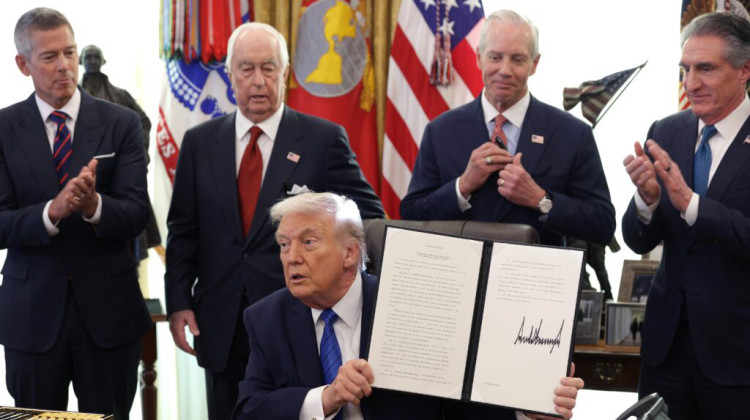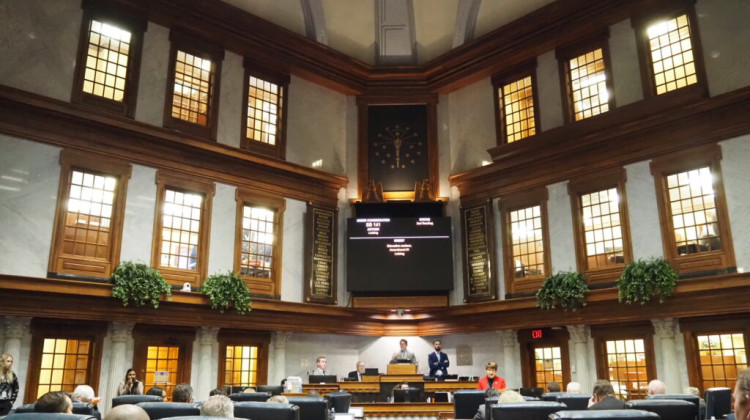
Produce from local farmers is unloaded at the Lafayette-based Food Finders.
FILE PHOTO: Jill Sheridan/IPB NewsAfter the farm bill failed in the U.S. House last month, it’s the Senate’s turn to take the legislation up. Wednesday's Senate hearing is unlikely to be as controversial.
Unlike the House bill, the Senate language doesn’t require people on SNAP — or the Supplemental Nutrition Assistance Program — to work 20 hours a week.
Bob White is the director of national government relations for the Indiana Farm Bureau. He says 80 percent of the funding from the farm bill goes to SNAP, so a dramatic change like that in the House bill was unlikely to pass.
“From that standpoint we’re happy that the Senate basically let that program alone and did not ... the work requirements basically are a polarizing issue,” says White.
The bill also doesn’t change crop insurance for farmers.
“Crop insurance is a safety net used by Hoosier farmers and basically all farmers around the country. It’s a good system, it has worked well in the past,” says White.
The bill also keeps the Conservation Stewardship Program, which helps farmers pay for environmental practices like planting cover crops — something U.S. Sen. Joe Donnelly supports.
Both House and Senate versions of the bill need to be approved before the bills can be combined for final passage.
Indiana Environmental reporting is supported by the Environmental Resilience Institute, an Indiana University Grand Challenge project developing Indiana-specific projections and informed responses to problems of environmental change.
 DONATE
DONATE







 Support WFYI. We can't do it without you.
Support WFYI. We can't do it without you.